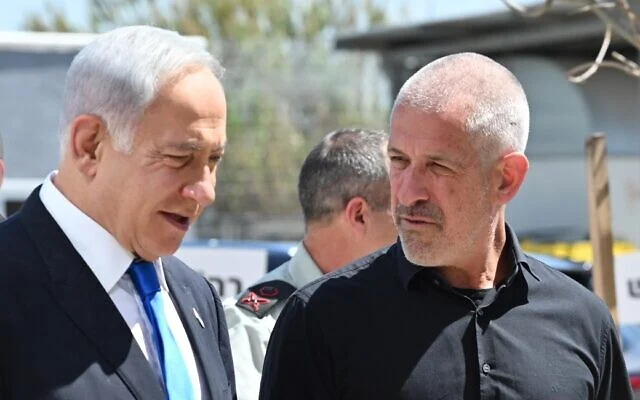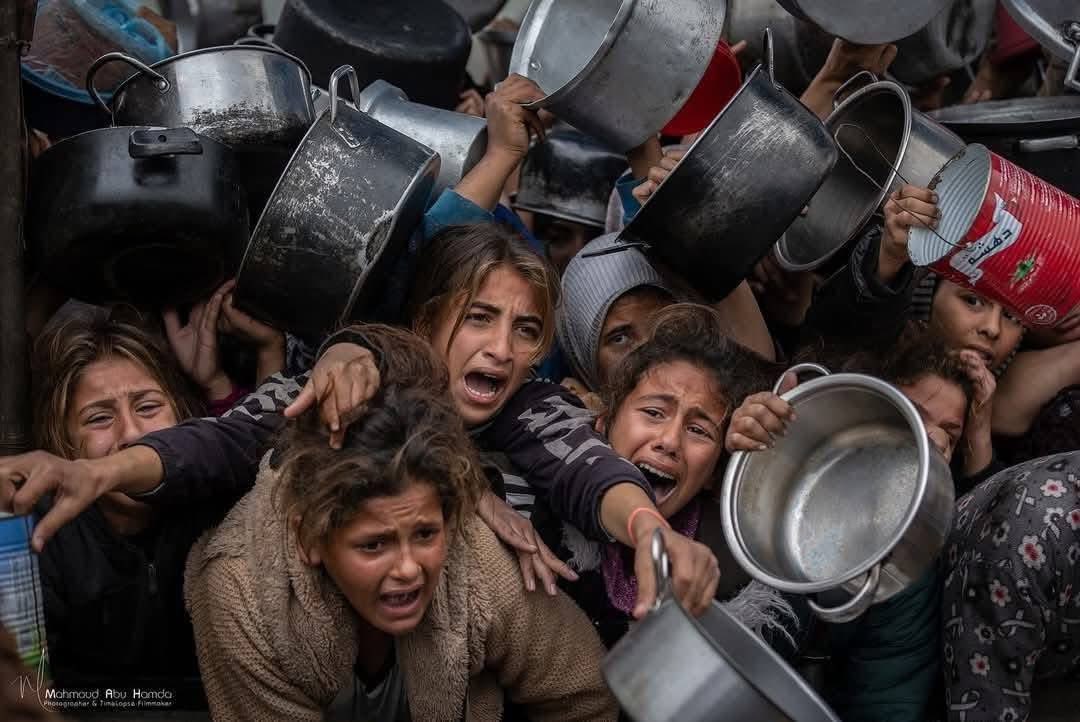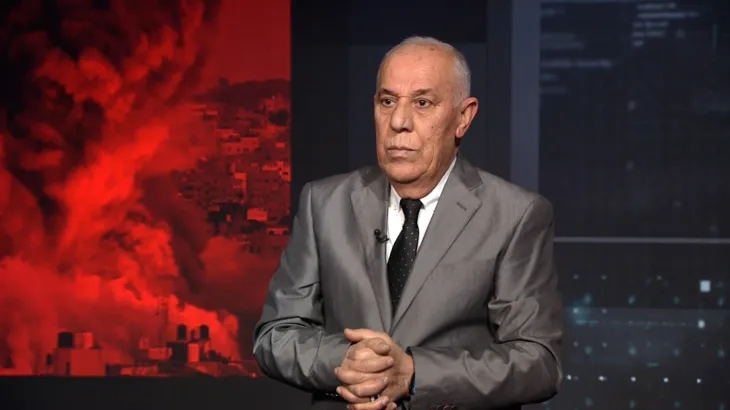Shin Bet Chief Reveals All Against Netanyahu
The head of Israel’s Shin Bet domestic security agency accused Prime Minister Benjamin Netanyahu of seeking surveillance of anti-government protesters and demanding his personal loyalty, in a testimony to the Supreme Court on Monday.
Netanyahu had tried to block Ronen Bar from submitting written testimony to the court, which the prime minister is expected to respond to in writing next Thursday.
Amid tensions between Bar and Netanyahu, the government decided on March 20 to dismiss the Shin Bet chief, but the court froze the dismissal order pending a review of opposition appeals.
According to the Israeli public broadcaster KAN, Bar wrote at the beginning of his affidavit that he had no knowledge of the reasons for his dismissal.
He said that the move “was not due to professional performance, but rather stemmed from an expectation of personal loyalty to the Prime Minister.”
“This reason – as I understand it – led to an extraordinary series of actions by the Prime Minister, alongside a media campaign against me on social media.”
The Shin Bet chief revealed that Netanyahu told him that in the event of a constitutional crisis, “I must obey the prime minister and not the High Court of Justice.”
Bar also said that Netanyahu requested Shin Bet to act against protesters opposing his government, calling it “an illegal request.”
According to Bar, Netanyahu told him “on more than one occasion” that he expected the Shin Bet to act against Israeli citizens involved in protests against the government.
Bar also wrote that he was asked to “provide details about the identities of Israeli citizens, protest activists, who had followed security personnel,” with particular emphasis on monitoring “protest funders.”
He disclosed that Netanyahu exerted “unusual pressure” on him to write a professional opinion, authored by Netanyahu or his aides, declaring that the prime minister should not appear in court to face ongoing corruption charges.
Bar added that Netanyahu tried to raise such matters at the end of meetings – after ordering his military secretary and stenographer, who operates the meeting recording device, to leave the room – “to prevent any record of the conversation.”
“I will soon announce the end date of my service,” he said, without specifying further.
Serious accusations
According to the Israeli daily Haaretz, Bar’s affidavit includes serious allegations against Netanyahu.
In response, Netanyahu’s office said that Bar submitted a “false affidavit” to the court, adding that it “will be refuted in detail in the near future.”
Later, Netanyahu’s office issued a statement rejecting Bar’s testimony to the High Court, calling it “full of lies” and proving that he “failed miserably” in the Oct. 7, 2023, attacks.
Bar falsely claimed that he alerted the entire security system on the night of Oct. 7, 2023, but failed to notify the prime minister or then-Defense Minister Yoav Gallant.
“If he had done so, the massacre would have been avoided,” the statement said.
According to the statement, Bar claimed he ordered the prime minister’s military secretary to be awakened at 5:15 a.m. local time, but his office director only contacted the secretary at 6:13 a.m., minutes before Hamas began its attack, despite having intelligence about a potential attack for more than three hours.
“This confirms what all ministers in the government already agree on: Bar failed catastrophically on Oct. 7,” Netanyahu said. “That alone justifies his dismissal.”
“Bar confirms the determination of all government ministers that he failed miserably on Oct. 7. This reason alone requires his termination,” the statement added.
Netanyahu’s office also accused Bar of concealing a statement issued two days before the attack.
On Oct. 4, 2023, Bar reported that the “renewal of understandings between Israel and Hamas based on the principle of quiet in exchange for concessions reveals the potential for preserving stability in the Gaza Strip.”
Opposition leader Yair Lapid said that the testimony shows that Netanyahu is posing a threat to Israel’s security.
“The Shin Bet chief’s testimony proves that Netanyahu is a danger to Israel’s security and cannot remain Prime Minister,” he added in a statement.
“Netanyahu tried to use Shin Bet to surveil Israeli citizens.”
On Sunday, Lapid warned of possible political assassinations, naming Bar as a potential target, and accused Netanyahu and his ministers of inciting violence.
At the same time, Lapid also criticized Bar, saying he “should have resigned since Oct. 7, 2023,” due to his failure to prevent the Hamas attack.
Meanwhile, Yair Golan, leader of the opposition Democrats Party and former Deputy Chief of Staff of the Israeli army, called Netanyahu “a direct threat to Israel’s security and the rule of law, and must step down immediately.”
In a post on X, Golan said Bar’s affidavit “is not just a warning, but a serious indictment and an emergency alert for Israeli democracy.”
He described Netanyahu as “a failure in security and politics, and deeply entangled legally.”
“Netanyahu is a chaotic leader heading a chaotic government, which is not only a threat to democracy, but a full-blown coup,” he added according to Anadolu.
The Israeli army resumed its deadly offensive on the Gaza Strip on March 18 and has since killed 1,864 people and injured nearly 4,900 others despite a ceasefire and prisoner exchange agreement that took hold in January.
More than 51,200 Palestinians have been killed in Gaza in a brutal Israeli onslaught since October 2023, most of them women and children.
Last November, the International Criminal Court issued arrest warrants for Netanyahu and his former Defense Minister Yoav Gallant for war crimes and crimes against humanity in Gaza.
Israel also faces a genocide case at the International Court of Justice for its war on the enclave.







